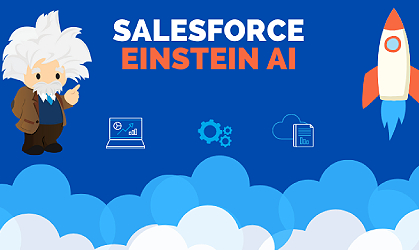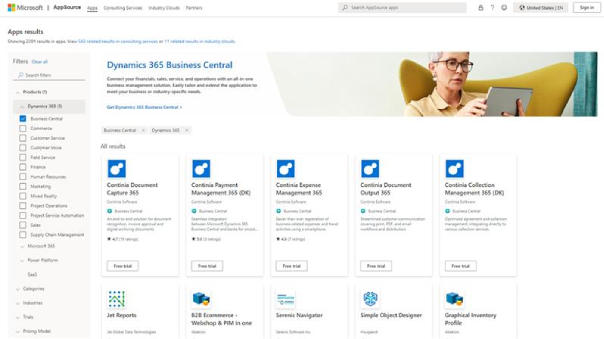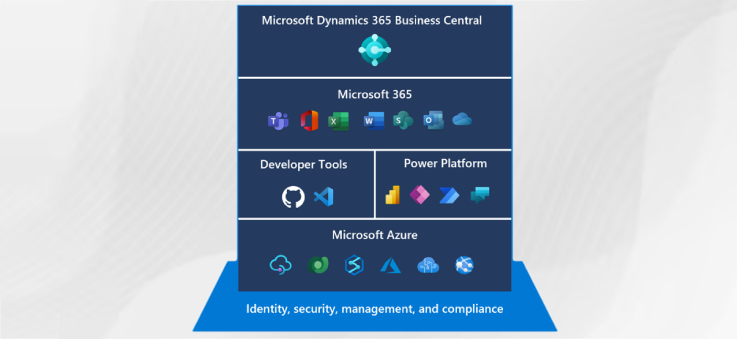Salesforce Einstein is an AI-powered tool designed to act as a co-pilot for businesses. By integrating generative AI, Salesforce Einstein provides sophisticated, intuitive, and proactive solutions that streamline operations and drive growth. This blog explores how Salesforce Einstein as a co-pilot and generative AI transforms the business landscape.
Understanding Salesforce Einstein
Salesforce Einstein is an AI technology integrated into the Salesforce platform to deliver advanced analytics, predictive insights, and intelligent automation. It uses machine learning, natural language processing, and deep learning to provide actionable recommendations and automate routine tasks, allowing businesses to focus on strategic initiatives.
Key Components of Salesforce Einstein
1.Einstein Discovery: This component provides automated insights and predictive analytics. It helps users identify trends, understand underlying factors affecting business performance, and make data-driven decisions.
Use Case: In Sales Cloud, it can identify sales trends and predict future sales, aiding sales teams in strategic planning. In Service Cloud, it can help understand and improve customer service metrics.
2. Einstein Prediction Builder: Users can create custom AI models tailored to their unique business needs without extensive coding knowledge. This tool predicts outcomes such as customer churn or product demand, enabling proactive measures.
Use Case: In Sales Cloud, it can predict which leads are most likely to convert. In Marketing Cloud, it can forecast campaign success rates.
3. Einstein Bots: These AI-powered chatbots automate customer service interactions, providing instant responses and freeing up human agents for more complex tasks.
Use Case: In Service Cloud, Einstein Bots handle common customer queries, improving response times and customer satisfaction.
4. Einstein Vision and Language: These tools use image recognition and natural language processing to analyze visual and textual data, enhancing capabilities in fields like marketing, service, and sales.
Use Case: In Marketing Cloud, it can analyze customer feedback to gauge sentiment and improve campaigns. In Sales Cloud, it can process and categorize emails from customers for better management.
The Role of Salesforce Einstein as a Co-pilot
Salesforce Einstein acts as a co-pilot by augmenting human capabilities with AI-driven insights and automation. This role is multifaceted, impacting various business areas:
Enhancing Customer Relationship Management (CRM)
- Personalized Customer Experiences: Einstein leverages data from customer interactions to provide personalized recommendations and offers. This personalization improves customer satisfaction and loyalty.
- Predictive Sales Analytics: Sales teams benefit from predictive insights that forecast customer needs and buying behaviors, allowing for timely and relevant engagement.
- Automated Customer Support: Einstein Bots handle routine inquiries, enabling customer service teams to focus on more complex issues. This improves response times and overall customer experience.
Optimizing Marketing Efforts
- Targeted Campaigns: Einstein’s AI analyzes customer data to identify segments most likely to respond to specific campaigns. This targeting increases campaign effectiveness and ROI.
- Content Optimization: By understanding customer preferences, Einstein helps marketers create content that resonates with their audience, driving higher engagement rates.
- Performance Analytics: Marketers can track campaign performance in real-time, making adjustments as needed to maximize impact.
Streamlining Operations
- Process Automation: Einstein automates routine tasks such as data entry and report generation, reducing manual effort and the risk of errors.
- Resource Allocation: AI-driven insights help businesses allocate resources more efficiently, ensuring that teams focus on high-impact activities.
- Operational Efficiency: Predictive analytics identify potential bottlenecks and areas for improvement, enabling proactive problem-solving.
Generative AI and Its Integration with Salesforce Einstein
Generative AI, a subset of artificial intelligence, involves creating new content, ideas, or solutions based on existing data. When integrated with Salesforce Einstein, generative AI enhances its capabilities, offering even more advanced solutions to business challenges.
Applications of Generative AI in Salesforce Einstein
- Content Generation: Generative AI can create personalized content for marketing campaigns, such as emails, social media posts, and advertisements based on customer data and preferences.
- Product Recommendations: By analyzing customer behavior and preferences, generative AI generates tailored product recommendations, increasing the likelihood of conversions.
- Customer Interaction: AI-driven chatbots and virtual assistants can generate natural, human-like responses, improving customer interactions and satisfaction.
Benefits of Integrating Generative AI
- Scalability: Generative AI enables businesses to scale their content creation and customer engagement efforts without significantly increasing costs or resources.
- Creativity and Innovation: AI-generated ideas and solutions bring a fresh perspective to business challenges, fostering innovation and creativity.
- Efficiency: Automating content creation and customer interactions saves time and resources, allowing teams to focus on strategic initiatives.
Implementing Salesforce Einstein and Generative AI in Your Business
Integrating Salesforce Einstein and generative AI into your business requires careful planning and execution. Here are some steps to guide you through the process:
1. Define Your Objectives: Clearly outline your business objectives and how AI can help achieve them. Whether it’s improving customer engagement, optimizing operations, or enhancing marketing efforts, having a clear goal will guide your implementation strategy.
2. Assess Your Data: Evaluate the quality and quantity of your data. AI models rely on data to generate insights and predictions, so having clean, accurate, and comprehensive data is essential for success.
3. Choose the Right Tools: Salesforce Einstein offers various tools and capabilities. Select the ones that align with your objectives and business needs. Whether it’s Einstein Discovery for predictive analytics or Einstein Bots for customer service, choosing the right tools is crucial.
4. Implement and Train: Implement the chosen tools and ensure your team is adequately trained to use them. Providing ongoing training and support will help your team maximize the benefits of AI.
5. Monitor and Optimize: Continuously monitor the performance of your AI models and make adjustments as needed. AI is an evolving technology, and regular optimization will ensure it continues to deliver value.
Challenges and Considerations
While Salesforce Einstein and generative AI offer significant benefits, there are also challenges and considerations to keep in mind:
Data Privacy and Security: AI models require access to large amounts of data, raising concerns about data privacy and security. Ensuring compliance with data protection regulations and implementing robust security measures is essential.
Integration with Existing Systems: Integrating AI tools with existing systems and workflows can be complex. A thorough assessment of your current infrastructure and a well-planned integration strategy are crucial for success.
Managing Change: Introducing AI into your business processes may require a cultural shift. Ensuring buy-in from all stakeholders and providing adequate training and support will help manage change effectively.
Ethical Considerations: The use of AI raises ethical questions, particularly regarding bias and fairness. Implementing measures to ensure transparency and fairness in AI models is important for maintaining trust and credibility.
The Future of Salesforce Einstein and Generative AI
The future of Salesforce Einstein and generative AI is promising, with continuous advancements in AI technology expected to drive further innovations and capabilities. Here are some trends to watch for:
- Increased Personalization: AI will continue to enhance personalization efforts, providing even more tailored experiences for customers. This will drive higher engagement and loyalty.
- Advanced Predictive Analytics: Predictive analytics will become more sophisticated, enabling businesses to anticipate customer needs and market trends with greater accuracy.
- Enhanced Automation: Automation capabilities will expand, allowing businesses to automate more complex tasks and processes, further improving efficiency and productivity.
- AI Ethics and Governance: As AI adoption grows, there will be a greater focus on ethical considerations and governance. Ensuring fairness, transparency, and accountability in AI models will be a priority.
Conclusion
Salesforce Einstein and generative AI are transforming the business landscape by providing advanced analytics, predictive insights, and intelligent automation. As a co-pilot, Salesforce Einstein augments human capabilities, helping businesses optimize operations, enhance customer engagement, and drive growth. By understanding the key components, applications, and benefits of these AI technologies, businesses can harness their full potential and stay ahead in the competitive market.
STREAMS Salesforce Practice is continuously helping its clients in Salesforce optimizations and new features like Einstein AI and would like to understand your Salesforce journey to help your sales business processes.





